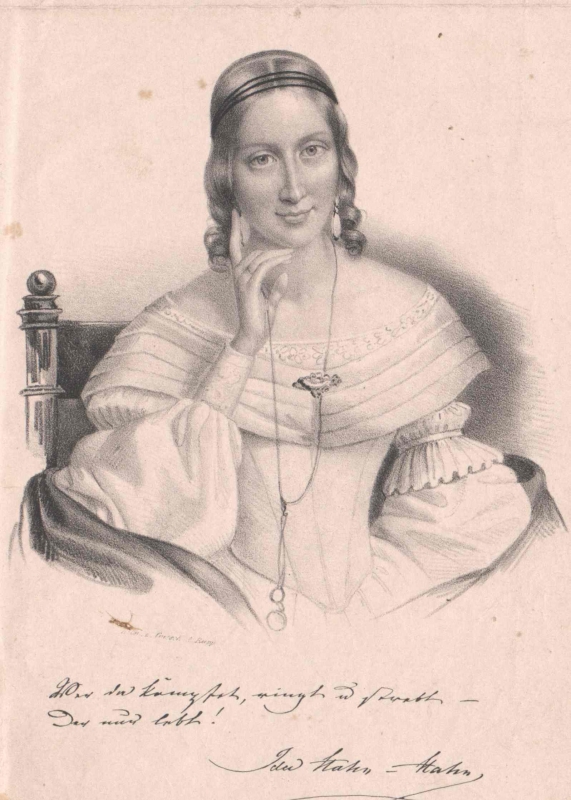DOLLS BORE ME: IDA HAHN, A GERMAN PROTO-FEMINIST?
Ida
Hahn (1806-1880) was a successful novelist and travel writer. Her Sibylle.An
autobiography, published in 1846, was no autobiography although it may well
have reflected facets of her own personality and captured elements of her own
thoughts and feelings as a child and teenager. Here is an extract:
Sibylle
was never entirely happy: I longed for an absolute happiness, that is, to be assured that it would never
change or perish. Relative happiness didn’t satisfy me…I dreamed of being a
goddess and thus missed becoming a human being.
She
was a bundle of nerves: One word, one
look, one smile was enough to elicit tears of discomfort.
She
loved the company of her older brother, with whom she spun fantasies and
engaged in make-belief: I was
Andromache to his Hector, queen to his knight, lady to his troubadour. But
she also took on tougher roles, such as Arria who stabs and kills herself. The moment of death moved my innermost
soul, she tells us.
After
a fever kills her father, brother, and sister,
she is deeply saddened and resolved to
accept pain as [her] permanent companion. She seeks fulfilment in knowledge, a terrible desire to know and get to the
bottom of things. She tries to learn about agriculture from farmers,
gardening from the family gardener, and accounting from the administrator of the
estate.
Children’s
games hold no attraction for her: Dolls
bored me. At Christmas she receives a play kitchen with dishes made of expensive
Meissen porcelain, but she prefers helping the cook in the real kitchen and
likes best to be left alone with her fantasies: I spent the happiest hours day-dreaming.
Respect for my
parents and superiors, which sometimes cause children fear and anxiety, were
absent in myself…I dominated the house. I never learned to obey.
She
falls in love with a visiting cousin, who treats her like a child: Flattery and shows of affection, which one
generously bestows on children without thinking sparked love in her. Well, what is love? You can say good and
bad things about it. It is heavenly but also earthly, the irrational instinct which drives a person to fulfil its
determination as an animal.
Returning after a year, Sibylle’s cousin
realizes that she is no longer a child and falls in love with her in turn. He
is fourteen years her senior. She is obliged by her mother to delay the
marriage for seven months until her fifteenth birthday.
In
real life too, Ida married her cousin (Friedrich Count of Hahn), but that is
where the similarities end. She was
twenty-one. He was twenty-two. The marriage ended in divorce.
(Source: Ida Hahn-Hahn. Eine Selbstbiographie, 1846)

No comments:
Post a Comment